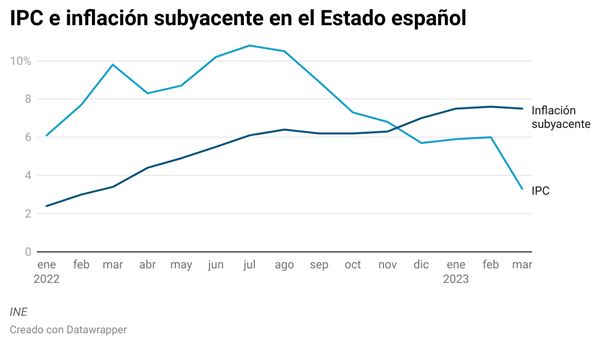The organic food retail sector has generally proved to be quite resilient to inflation over the past year. Although people in Austria bought less organic products in 2022 than in the previous year, they still bought more than before the corona pandemic, according to current data from AMA Marketing. Organic remains a success story in this country, emphasized Agriculture Minister Norbert Totschnig (ÖVP) on the sidelines of the “Biofach” trade fair in Nuremberg.
With a minus of 3.5 percent in the quantity sold, the organic boom of the recent past ebbed away for the first time. The sales volume fell to no less than 212,000 tons in 2022 after steady increases in previous years. In 2017, the amount sold in the domestic food retail trade was still around 138,000 tons, before rising to 161,000 tons in 2019 and 190,000 tons in 2020. After a further strong increase, a plateau was initially reached in 2021 with around 220,000 tons.
AMA remains optimistic
Despite the recent drop in consumption, AMA Marketing Manager Christina Mutenthaler was optimistic about the future. She referred to a current driver analysis by the AMA, according to which awareness of sustainability and animal welfare is becoming increasingly entrenched, especially among younger generations. “Organic has continued to exist,” she confirmed at a press conference on Thursday.
On the sales side, however, the trade in organic products experienced further growth, the total sales value (excluding bread and pastries) of organic goods in Austria rose nominally by 3.7 percent compared to 2021. However, the increase in turnover is due to the huge price increase; according to Mutenthaler, inflation-adjusted figures were not available.
Price increases for organic products
Bio-Austria boss Gertraud Grabmann still saw this as “a remarkable result” and stressed that the price increase for organic products was lower than for conventional goods. According to the current Roll-AMA data, the average price increase for organic in 2022 was 7.5 percent, while according to the AMA study (no CPI value, ed.) prices of conventional food rose by 11.5 percent. “Organic has thus become a brake on inflation in the food sector,” said the chairman of Bio-Austria.
The organic share in the food retail trade was a new record last year at 11.5 percent (2021: 11.3 percent). This is mainly due to price increases of organic meat and poultry, the relative share of which compared to conventional goods grew from 6.2 to 7.2 percent. There were few shifts in the other product groups in 2022. As in previous years, consumers were particularly fond of organic milk (29.5 percent), yoghurt (26.4 percent) and fresh vegetables (22.5 percent). The share of potatoes (now 22.1 percent) and eggs (20 percent) has fallen somewhat.
Austria pioneer in the field of organic
Austria is considered an international pioneer in organic production. More than a fifth of all domestic farms are organic farms and 27 percent of all farmland is farmed organically. By way of comparison: according to the Swiss research institute FIBL, the worldwide share of organic areas in 2020 was around 1.6 percent. Only Liechtenstein was ahead of Austria with an area share of 41.6 percent.
Now is the time to build on that, said Totschnig, who has set a goal of increasing the share of organic land to 35 percent by 2030. The politician expects important impulses in this direction from, among other things, the “Organic Agriculture Action Program” and other measures at European level, such as the “Farm to Fork Strategy”, which, among other things, provides for a limitation of the use of chemical pesticides in agriculture.
Source: Krone
I am Wallace Jones, an experienced journalist. I specialize in writing for the world section of Today Times Live. With over a decade of experience, I have developed an eye for detail when it comes to reporting on local and global stories. My passion lies in uncovering the truth through my investigative skills and creating thought-provoking content that resonates with readers worldwide.



